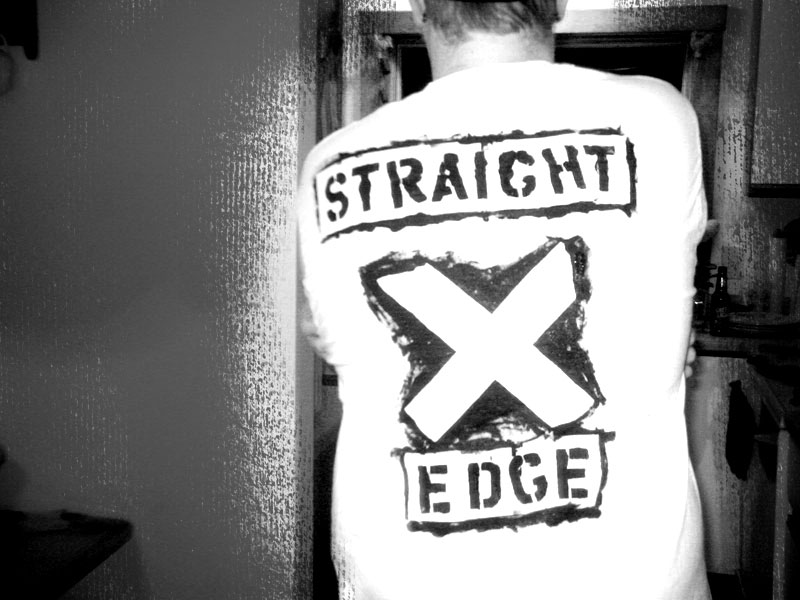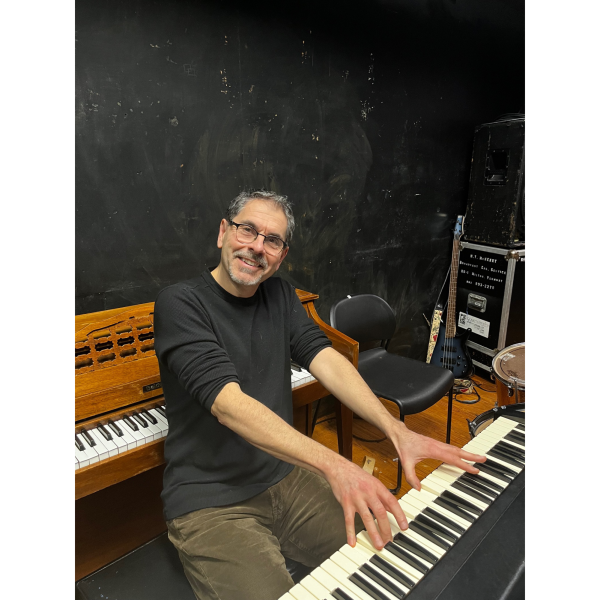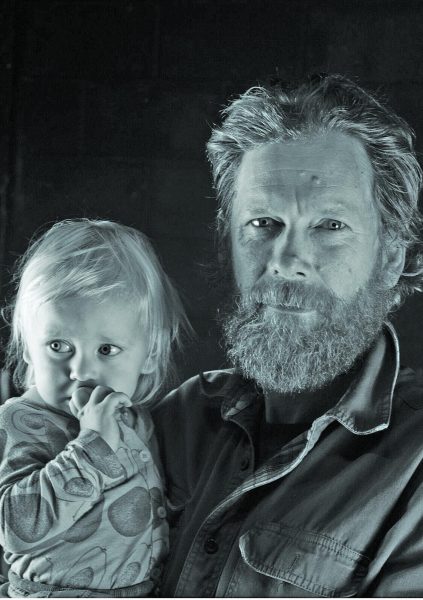X marks the spot
Born from the lyrics of the 1981 song by hardcore punk band Minor Threat, “Straight Edge,” the straight edge movement arose in unison with the punk scene as a drug and alcohol-free counterculture.
The premise of the straight edge lifestyle is simple and inherently conservative: no consumption of drugs or alcohol, and no engagement in promiscuous sexual activity. For some, these rules extend into vegetarianism and veganism, and abstaining from prescription medications and caffeine.
Since the release of “Straight Edge” in the early 80s, straight edge communities have been founded in cities across the United States from San Francisco to Boston and New York. Quite often these communities are focused in local music venues and do-it-yourself house shows.
Some notable musicians and celebrities also lead a straight edge lifestyle rooted in hardcore and punk music: Andy Hurley, the drummer for the rock band Fall Out Boy; former professional wrestler Phillip “CM Punk” Brooks; Los Angeles Angels starting pitcher C.J. Wilson; and rapper Tyler, the Creator all subscribe to the straight edge lifestyle.
Such congregations of clean-living individuals differ from those living sober for religious or other personal reasons; this is a culture with exclusive ties to the music from which it derives. Despite its exclusivity to a specific genre of music, the culture does not turn away people looking to begin anew, such as myself.
I became straight edge much the same way a mathematics major whittles away at the solution to a quadratic equation: by trial and error, finding a path, and never looking back.
The alcohol-fueled debauchery of my early adolescence quickly slipped into habit, and from habit to self-medication. Suddenly, my anxieties were quelled; meanwhile, I had no idea that I was running away every time life got tough.
It was an alarming pattern that had to be changed for my physical and developmental health to improve.
Fortunately, punk and alternative music became another escape. Along with my initial interest in punk music came the concept of a straight edge lifestyle.
According to freelance music journalist Tony Rettman in a March 12 article for Green Room Radio, entitled “Straight Edge: A Primer,” Minor Threat frontman Ian MacKaye noticed that the practice of marking the backs of people’s hands with black X’s began to identify underage punk fans who entered barrooms in San Francisco.
The practice was quickly adopted as a cultural trademark of the straight edge community by sewing Xs onto clothing, incorporating them into band names, and inscribing them into skin as tattoos.
Here in small town Johnson, Vermont, however, bringing up the term ‘straight edge’ can draw some blank stares.
Since the straight edge punk scene in Vermont is not exactly thriving and vibrant, it is not surprising that the lifestyle is yet to connect with people.
There are, however, two other fellow straight edged students at Johnson. Both Steph Zello and Ryan Downs echo similar reasons for their foray into the lifestyle: the desire to eschew destructive behavior and decision making.
“I grew up in a place where I saw good people destroying themselves with substance abuse and knew that I wasn’t going to end up like that,” said Zello. “My dad is an alcoholic and [he] and I are exactly alike. I have seen him fall apart and deteriorate over the years and I don’t want to follow that path.”
For people such as Zello, opting for a clean lifestyle is not a part of some superiority complex or misanthropic outlook on the choices people make; it is knowing through personal experience how an addictive personality could potentially turn into substance abuse.
“I have an addictive personality, so I choose not to risk an addiction by living a clean lifestyle,” Zello adds.
Downs, a graduate student at Johnson, also remembers vividly how substance abuse sounded to him at an early age.
“When I was 11 years old, I got told by my parents that a family member of mine had gone to the hospital, [that] they were in the emergency room,” said Downs. “They got very, very drunk and ended up passed out on the sidewalk. Their teeth got knocked out, and it was pretty serious.”
“I just remember my parents explaining that to me, I think that moment made a pretty intense impression on me,” said Downs. “From a very early age when I would be starting to think about getting involved in these things, [I decided] that this was not for me.”
For Downs, autonomy is a key ingredient to his chosen lifestyle, and a lesson he learned from the illness of substance abuse in his own family.
“To me, [straight edge] is about taking control of my own life,” said Downs. “I always like feeling like I’m in control of my body. Especially as someone who has had family members who have had struggles with alcoholism, this is a way of taking control of my life in a way that I saw people not doing around me.”
It is important for the reader to know that even though the term ‘straight edge’ was simply a lyric in a punk song that some took as license to reprimand behaviors of others who did not subscribe to drug-free living, the lifestyle does not have to entail such behaviors. What people do with their lives is entirely their prerogative.
“There are people with superiority complexes and violent tendencies in all cultures,” said Zello. “You just have to find good people in the culture as well.”
The common thread running through this version of the straight edge community is the sense of belonging through punk and alternative music in an accepting and non-violent setting.
“It means community to me,” said Downs. “I was always the kid growing up who didn’t really fit in wherever I went. Getting involved and going to punk shows, and pop-punk shows, and meeting people through that who identify as straight edge.”
The lifestyle can feel lonely, as the dearth of straight edge punk artists leaves me with a longing for such a community. The absence of any kind of punk scene, straight edge or not, has forced me to be open-minded about how to define my version of the lifestyle, a mindset that is shared by both Zello and Downs.
For the three openly straight edge people here at Johnson, myself included, no soapboxes or high horses are needed. We are a judgement and drug free community forged from individual personal experiences and punk rock.
The desire to improve my physical and emotional health got me addicted to new and exciting styles of music and healthy new activities in fitness. The straight edge lifestyle allowed me to feel comfortable with reinventing the term straight edge to mean an all-inclusive community.










